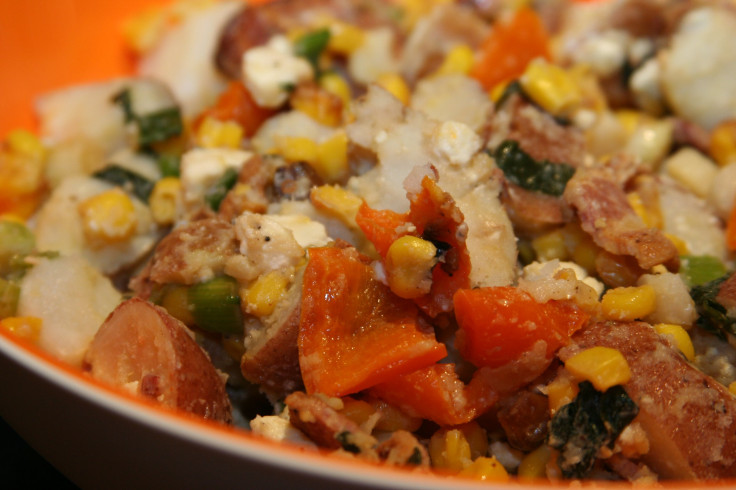Is The Gluten-Free Diet Overhyped? [VIDEO]

Most Americans learned of the gluten-free diet as they once discovered hip-hop or the invention of mountain bicycles — from an evening news anchor or close personal friend.
Before long, best-selling diet books — such as Wheat Belly by cardiologist William Davis — gained mainstream popularity, and some found themselves out to dinner with friends and associates professing an allergy to wheat gluten, as upper-echelon restaurants leapt to fill the niche.
Today, researchers at the University of Chicago estimate that one in 133 Americans has celiac disease, by which the consumption of a gluten protein in foods processed from wheat, barley, and rye causes a serious autoimmune response in the small intestine.
Others may be merely sensitive to the protein, experiencing gastrointestinal distress, or a tummy ache, from eating the staples of the "corn-fed" American diet.
Read more: Celiac Disease Sufferers Who Don't Control Their Diet May Be At Risk For Lymphoma
Appropriate For The Mainstream, Main Street Diner?
However, nearly one-third of Americans say they're avoiding gluten in their diet, according to a survey this year from market researcher NPD Group, causing some doctors to question these fastidious followers of fad.
David Katz, director of Yale University's Prevention Research Center, says that many are lured by easy promises only to exchange unhealthy processed foods for the same, only without the gluten — which may or may not have been a problem. "It's entirely possible to eat gluten-free junk food, too," he told reporters. "Now that it's caught on, there's a proliferation of highly processed gluten-free foods. You can definitely cut gluten and still get fatter and sicker."
In Wheat Belly, Davis blames the bounty of modern, genetically modified wheat crops as the source of America's impoverishment of health, a population comprised mostly of the overweight, for whom the "hottest" politician is Chris Christie, the portly New Jersey governor who earlier this year admitted to gastric band surgery.
Read more: Chris Christie Weight Loss: NJ Governor Acknoweldges Secret Stomach Surgery
Davis says that everyone, regardless of whether they're severely allergic or somewhat sensitive to gluten, would benefit from eschewing breads and pastas in favor of chewing on vegetables, meats, and other foods free of gluten.
Still, some researchers say large numbers of Americans are unnecessarily limiting their dietary choices — and possibly annoying dinner hosts and restaurant chefs on the receiving end of returned dishes — by following the gluten-free diet in the strictest sense. Lawrence Cheskin, director of the Johns Hopkins University Weight Management Center, says little evidence supports mass avoidance of glutens every day.
"It's really a small group of people who have a pathological response to gluten," Cheskin told reporters. "And for them it's absolutely essential to eat a gluten-free diet. Everyone else may be limiting their choices unnecessarily."
For Katz, the answer to America's dietary dilemma sounds unfashionably old-fashioned: eat only when hungry, consuming whole foods rather than processed, making sure to get plenty of exercise.
"Diets are, almost by definition, things you get on and get off," Katz said. "It really needs to be about your whole dietary pattern," he continued, adding that fad dieters would likely see no long-term benefits, without a serious commitment.
Still, other scientists continue pushing fasting-types of diets onto the mainstream consumer, such as the ketogenic system developed in the 1920s as a treatment for tough cases of epilepsy in children. With normal levels of protein, the diet is high in fat and low in carbohydrates. Deprived of fuel from carbohydrates, the liver converts the fat into fatty acids and ketone bodies, the latter of which then fuels the energy-hungry brain in place of glucose — with elevated levels of ketone bodies in the bloodstream helping to reduce the frequency of seizures among epileptics.
Although useful for epilepsy and autoimmune disease as well, such fasting diets remain suspect for Katz and like-minded researchers with respect to the broader population. "The one potential upside to occasional fasting [or restrictive diets] is the mindfulness it imposes," Katz said. "It offers a dose of concentration and discipline about your food. But it's an awkward way to live and hard to share with a family."
Below is an instructional video on the gluten-free diet:



























